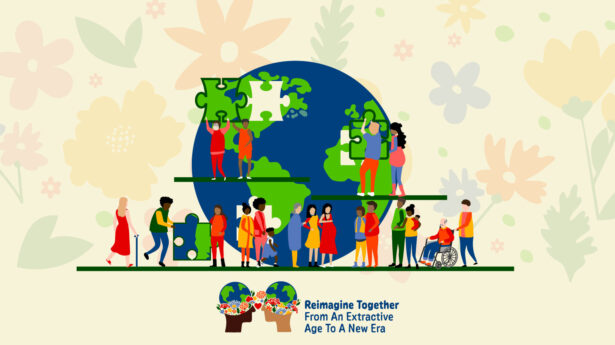The Unitarian Universalist Service Committee advances human rights through grassroots collaborations.
July 22, 2016, Rights Reading
July 22, 2016
Our weekly roundup of what we’re reading: a few select articles from the front lines of human rights that we don’t want you to miss.
1. “Crisis and Opportunity: How One Startup is Capturing the 360-degree Reality of the World’s Most Vulnerable People,”Abe Streep, Wired Magazine, July 15, 2016
“Four boats approach the small harbor of Skala on the Greek island of Lesbos. The first vessel is occupied by agents of Frontex, the European Union border-control unit…. They tow the second boat, an inflatable dinghy with flimsy plywood baseboards that’s crammed from pontoon to pontoon with extremely cold people…. The third boat, a gray Zodiac, found them. Behind the scene trails the fourth boat, a wooden vessel owned by a local fisherman. On the bow, a bearded American named David Darg holds up a small virtual-reality camera called a Ricoh Theta. Thirty-seven years old, with a reddish-brown beard, tight black jeans, and the thick build of a logger, Darg occupies a unique and peculiar role within the fast-moving world of new media. On the one hand he’s a crisis responder and vice president of international operations at Operation Blessing, a faith-based nonprofit. But he’s also cofounder of Ryot, a Los Angeles for-profit company that specializes in hopeful video content from developing and disaster-affected nations.”
Abe Streep’s first-hand reporting from the heart of the global refugee crisis introduces a unique group of journalists who believe that creating a new to consume global news can influence people to volunteer their time, advocate for people in need, and contribute money to organizations involved in humanitarian work. It’s a story full of technical details about how to use virtual reality cameras in this new approach to media (“VR Cameras require mostly that one get out of the way. The camera catches everything, and the real work comes later, in post-production”).
But it also touches on journalistic ethics. When Streep asks Darg about the donation he made to an aid organization for access to refugees, he responds with the argument that his donation bought kitchen supplies for children at the camp, and also promoted the work of the nonprofit aid group, outcomes he claims are less exploitive than the work of some mainstream journalists.
And it’s also a story about organizational mission and big media. Ryot calls itself an “empathy machine.” Darg considers himself “a crisis responder first and a filmmaker second.” But with productions like its award-winning short film, Baseball in the Time of Cholera, and an Oscar-nominated HBO special, Body Team 12, Ryot has become a hot commodity. In April, it was bought out by AOL but will retain editorial control, fulfilling, its goal of becoming the world’s largest VR news network.
Read the latest stories about the work of UUSC’s partner organizations and individual volunteers in Greece and other locations as they join in responding to this international crisis.
2. “Elton John Pledges Millions to Support LGBT People in Africa,” Sara Boseley, The Guardian, July 20, 2016 “Elton John Pepfar
“You might have to fight for your own life but it will be worth it because in the end, you will win.” – Elton John
Support for LGBT people will help reduce the spread of AIDS, the primary mission of John’s foundation. But he recognizes the additional need to confront homophobic governments whose policies go beyond closing down clinics providing anti-HIV medications to inciting violence and persecution against LGBT individuals.
In the article, John recalls his own youth when it wasn’t acceptable behavior to live life as an openly gay person in his native England. He also noted how after 9 years in a civil union, he and his husband were able to legally marry in 2014. “’You might have to fight for your own life but it will be worth it because in the end, you will win,’” John says.
UUSC has recently launched its own strategy to help LGBT people advocate for their human rights in Sub-Saharan Africa.
3. “We’re Helping Deport Kids to Die,” Nicholas Kristof, New York Times Sunday Review, July 16, 2016
Nicholas Kristof begins this searing Op-Ed with the personal story of Elena, an 11-year-old girl from Honduras who recalls a gang member in her hometown telling her to be his girlfriend.
“’I had to say yes,’ Elena, now 14, explained. ‘If I had said no, they would have killed my entire family.’” She knew this, Kristof reports, because she saw what happened to one of her friends who said no to gang members, who was shot in the stomach and left to die.
“If other countries were forcibly returning people to their deaths, we would protest. But because we Americans worry about refugees swarming across our borders, we help pay for Mexico to intercept them along its southern border and send them — even children like Elena — back home, where they may well be raped or killed.”
Kristof documents murders, even massacres of whole families of farmers at the hands of Honduran gangs. People seeking asylum from these horrors are not economic migrants, he writes. While he enthusiastically supports much of what the Obama Administration has done since 2009, he is bitter about its record on refugee rights, claiming that under President Obama, the United States is colluding with Mexico to send people back to gangs who want to kill them. In his mind, this is no different than policies we denounce when, for example, Kenya sends refugees back to Somalia, where they face violence and death.
Details about UUSC’s work with Central American migrants can be found via this link. Readers who want to learn about the ways each of us can take steps to prevent these tragedies and confront complicit government – including our own – can find ideas in UUSC’s Refugee Toolkit and Refugee Rapid Response Network.

